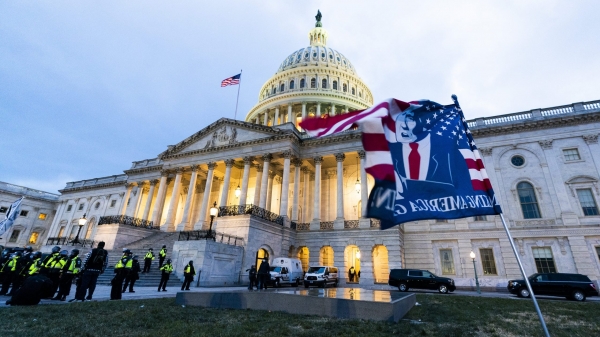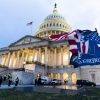By Brandon Moseley
Alabama Political Reporter
Congressman Spencer Bachus (R) from Vestavia released a report titled “The Dodd-Frank Act, the Persistence of ‘Too Big to Fail,’ and the Institutionalization of Government Bailouts” on Wednesday. Representative Bachus is the Chairman of the House Financial Services Committee. The report is a seven-page analysis prepared by House Financial Services Committee staff which refutes claims made by supporters of Dodd-Frank that the 2,300-page law ends “too big to fail” and ends bailouts.
Chairman Bachus wrote in the Washington Times, “While Democrats claim Wall Street was their target, the truth is the regulatory burden of Dodd-Frank is inescapable no matter where you live or work. If you buy food, consume energy, use a debit card, want to start a small business or buy a home, you will experience some of the red tape that emanates from Dodd-Frank’s 400 new regulations. These regulations will cost the private sector money and time. The regulators themselves report it will take companies 20 million work hours each year to comply with just the first 224 of these 400 new rules – a figure that is especially staggering when one considers it took 20 million hours to build the Panama Canal. Unlike the low-paid workers who built the Panama Canal, high-priced lawyers, lobbyists and accountants charging hundreds of dollars per hour for their services do much of the work on Dodd-Frank. At least with the canal, we gained a valuable strategic asset. With Dodd-Frank, we’ll see employment of financial examiners grow faster than the average for all other occupations, the Bureau of Labor Statistics reports. This must be the administration’s idea of a “jobs bill.””
According to the report the largest banking institutions have actually grown larger since the 2008 Tarp bailouts and have continued to expand in size since the passage of Dodd Frank, meanwhile on average small banks paid depositers 60% less interest than the mega banks did.
Also Rep. Bachus says that the increasing size of these institutions make future bailouts almost certain. The Report says: “Not even the Secretary of the Treasury, Timothy Geithner, believes that the Dodd-Frank Act ended “too big to fail.” When asked about the multiple rescues of Citigroup and whether the Dodd-Frank Act ended “too big to fail” by the Special Inspector General for the Troubled Asset Relief Program, the Secretary Geithner said out loud what everyone already knows to be the truth: “In the future we may have to do exceptional things again if we face a shock that large.” But the Dodd-Frank Act was supposed to save government officials from doing “exceptional things”; that is the reason for its existence. If the Dodd-Frank Act means that “in the future we may have to do exceptional things,” then the Dodd-Frank Act cannot credibly be said to have ended “too big to fail.”
According to the report the biggest banks are bigger than ever. JPMorganChase has assets of $2,266 billion, Bank of American has $2,137 billion, Citigroup $1,874 billion, Wells Fargo $1,314 billion, and Goldman Sachs $924 billion. Dodd-Frank gives federal regulators the ability to borrow up to 10% of the value of any bank from the treasury if they need to prop it up……..thus institutionalizing bailouts and for these largest banks exposing the taxpayers to a lot of potential liability if we were to see another banking meltdown like 2008.
Congressman Spencer Bachus represents Alabama’s Sixth Congressional District. The Sixth District includes all or parts of Shelby, Jefferson, Blount, Chilton, Bibb, and Coosa Counties. Rep. Bachus is seeking an 11th term in the Congress. His Democratic opponent on the November 6th ballot is retired U.S. Air Force Colonel Penny Huggins Bailey from Leeds.
To read the report:
http://financialservices.house.gov/uploadedfiles/tbtf_dodd_frank.pdf





















































